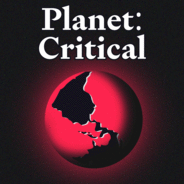Fadhel Kaboub is a former Associate Professor of Economics at Denison University where he researched political economy, decarbonisation, colonialism, and the financial and agricultural policies necessary to facilitate a global—and just—green transition. Since recording, Fadhel has been appointed Under-Secretary-General for Financing for Development at the international intergovernmental organisation, Organisation of Educational Cooperation.This episode is thrilling. Fadhel explains the traps of inflation, debt, globalisation, and the financial and agricultural policies weaponised by the global north to exploit the global south. He walks us through the three structural traps which keep wealth pouring out of the global south into the global north, amounting to modern colonialism. And he explains why we can afford a just transition, revealing the exciting mechanisms of Modern Monetary Theory by exploring the solutions global south countries can implement to ensure their sustainable development."You can't decarbonise a system that hasn't been decolonized yet, economically speaking. Similarly, you can't democratise a system that hasn't been decolonised yet.Because you can't meet the aspirations of your people and meet their needs in terms of food or housing or quality of life if your economic paralyses you and prevents you from serving those needs, and requires of you to serve the needs of the global supply chains in manufacturing or energy and so on."Planet: Critical investigates why the world is in crisis—and what to do about it.© Rachel Donald Get full access to Planet: Critical at www.planetcritical.com/subscribe

PolitikWirtschaftTalk
Planet: Critical Folgen
Planet: Critical is the podcast for a world in crisis. We face severe climate, energy, economic and political breakdown. Journalist Rachel Donald interviews those confronting the crisis, revealing what's really going on—and what needs to be done. www.planetcritical.com
Folgen von Planet: Critical
198 Folgen
-
Folge vom 02.02.2023Decolonise to Decarbonise | Fadhel Kaboub
-
Folge vom 26.01.2023Writing A Better World | Kim Stanley RobinsonKim Stanley Robinson is a science fiction writer and author of the acclaimed novel, The Ministry for the Future. Set in the near future, this work of climate fiction explores the geopolitical, technological, political and economic demands of the climate crisis, imagining how nations around the world will respond to its impacts—resulting in the destruction and reimagining of the world order.Stan joins me to discuss the role of writing, of art, of fiction in particular in the face of a crisis. He gives a fascinating overview of science fiction’s response to the world over the past few decades, exploring the role of stories, narrative, and how citizens can both grapple with and demand change in their societies.“History is malleable and is constantly changing in people's heads. I say there was a moment that was intensely revolutionary in the new wave science fiction between 1965 and 1975. Then, along with Reagan and Thatcher, came this kind of reactionary, defeatist science fiction, sometimes called cyberpunk. And that was dispiriting, and science fiction kind of lost its way and fantasy came in to replace it.“So I have a macro story for even my own field that is very personal, but what I can say is that now it has blown up. There are scores of writers with scores of stories coming at it from every possible angle trying to say, we can make a better world. In other words, I think utopia keeps rising to the top; the story of things getting better is something that people are hungry for, and so people keep writing it. And sometimes it does feel like magical thinking. Other times it's like social planning.”Planet: Critical investigates why the world is in crisis—and what to do about it.© Rachel Donald Get full access to Planet: Critical at www.planetcritical.com/subscribe
-
Folge vom 19.01.2023The Green Transition Needs Land | Max AjlMax Ajl is a fellow at Ghent university researching the climate and agrarian issues. He's also the author of the acclaimed A People’s Green New Deal, a “radical alternative” to the Green New Deals peddled by government institutions over the past years.Max joined me to discuss the necessity of land reform in the global green transition, explaining the importance of peasants, the relationship between land, production and debt, and how the post-colonial nations can liberate themselves from the late stage capitalist economy inflicted upon them by the global north.“In many post-colonial countries, if the issue is that you have an excess of labour, which is the case across Latin America, Africa, West Asia, you actually have capacity to mobilise labour and apply it to land. And the best way to do that is to carry out an agrarian reform, to actually increase the size of the units of land available to the poorest people…“Automatically, you would increase national production and you would increase the wellbeing of the poorest sectors of your population. So this is actually a developmental imperative. Therefore, unless there's some overriding ecological reason to say we shouldn't be doing that, then it should be an overriding developmental imperative in any form of green transition.”Planet: Critical investigates why the world is in crisis—and what to do about it.© Rachel Donald Get full access to Planet: Critical at www.planetcritical.com/subscribe
-
Folge vom 12.01.2023The Steady State Economy | Brian CzechBrian Czech, founder of the Center for the Advancement of the Steady State Economy, is an ecological economist and former conservation biologist. Brian joined me just after returning from COP15 and, thankfully, says the fallacy of economic growth is finally being discussed at these critical conferences.On the episode, Brian explains the relationship between economics and the planet’s biosphere before introducing steady state economics, an economic model which prioritises stability and the protection of planetary boundaries. He also describes his time working for the US government, and walks us through the trophic theory which dismantles any techno-utopian argument that we can innovate our way out of the climate crisis and continue to enjoy growth for growth’s sake.Planet: Critical investigates why the world is in crisis—and what to do about it.© Rachel Donald Get full access to Planet: Critical at www.planetcritical.com/subscribe
